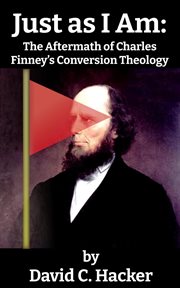Nonfiction
eBook
Details
PUBLISHED
Made available through hoopla
DESCRIPTION
1 online resource
ISBN/ISSN
LANGUAGE
NOTES
This book examines the relationship between the conversion theology popularized by Charles Grandison Finney and the theological drift of Baptists in the South from Calvinism to Arminianism. It begins with a survey of the historical evidence of the Calvinistic roots of Baptists in the South by way of a brief overview of Baptist origins in England, followed by an overview of Baptist life in America, including the founding of the first Baptist church in the colonies in the seventeenth century, developments in Baptist soteriology in the eighteenth and nineteenth centuries, and concluding with trends that emerged in the twentieth century. Next, an overview of the traditional or Calvinistic Baptist view of conversion that was the majority view prior to the mid-nineteenth century, which provides a brief contrast of the two predominant views held by evangelicals, Arminianism and Calvinism, and demonstrates how uncommon the views of conversion popularized in the mid to late nineteenth century had been previously.The remainder of the book focuses on the conversion theology of Finney and the opposition from his contemporaries by analyzing Finney's rejection of reformed orthodoxy and the use of the means of grace, his views that revival and conversion are of human rather than divine origin, his departure from the Edwardsean theological tradition he had inherited, his Pelagian and semi-Pelagian tendencies, his conflation of backsliders with false professors, and the fact that he propagates and popularizes existing error rather than inventing new a theology or methodology. Next is a survey of the effects of Finney's theology on Southern Baptists and evangelicalism as a whole under the following headings: Finney's polemical rewriting of history and its impact on subsequent generations, the effects of revivalism, and the specific effects of Finney's theology on Baptists, the understanding of God and His role in conversion, and church practice. The book wraps up with a summary of the lingering effects of Finney's Pelagian theology on the church today, which concludes that Finney's influence on Baptists in the South was part of the theological shift from their Calvinistic roots to Arminianism as the dominant theology, and ends with practical and pastoral applications for the church today
Mode of access: World Wide Web







